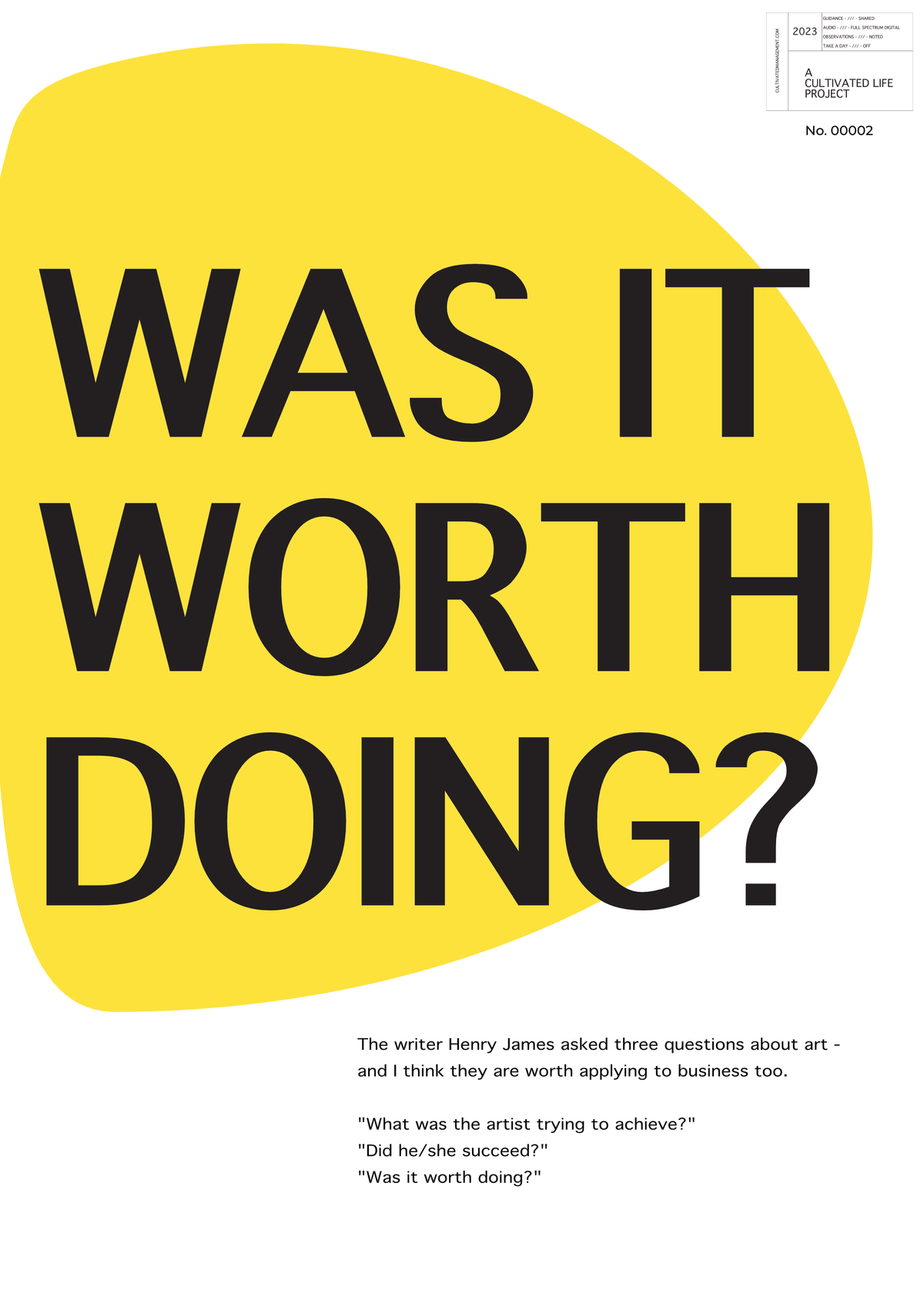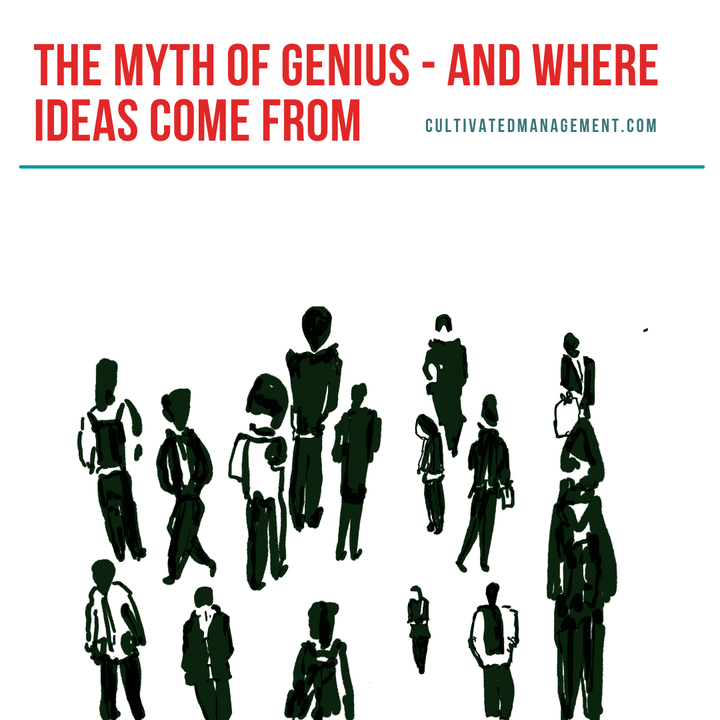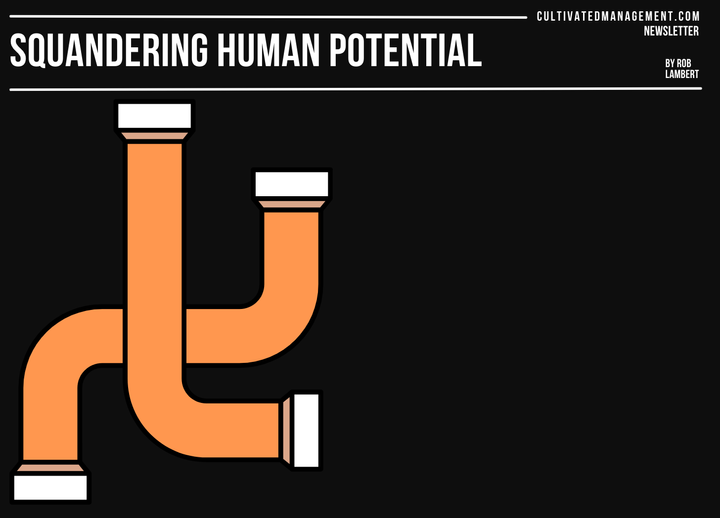Was it worth doing? One of 3 brilliant questions to ask

Having spent decades as a leader and a leadership consultant, I am often struck with how many initiatives, ideas, work, and action is discarded, abandoned, left to fester, or simply ignored. It happens everywhere (well, I see it as a consultant but I never let it happen as a leader!).
Change programs that are abandoned half-way through. Initiatives that drive energy and attention in the organisation and then the output is left to fester. Workshops, meetings, and events put together at significant cost, only to drive the wrong outcomes or the outputs are ignored when everyone is back in the office.
PowerPoints created and then immediately shelved. Duplicate planning effort then no decision about which path to follow. Busy work induced by an ill-conceived idea from a leader, then abandoned after people have invested energy and attention in it.
And of course, maybe we’ve all worked on a project that is canned mid-way through.
It seems to be a factor in business and one I’m not too comfortable with.
But we must learn from these events and improve our approach to avoid repeating the mistakes and of course, wasting money. It’s not just a financial cost I am talking about here, it is actually a human cost.
People like to see the fruits of their labour.
We want to see the work we do connected to the wider business success. We want to know that the effort we put in leads to something useful. We want to see our creations being used.
In a sense, we want to find meaning in what we do.
The writer Henry James asked three questions about art – and I think they are worth applying to business too.
- “What was the artist trying to achieve?”
- “Did he/she succeed?”
- “Was it worth doing?”
If we look at projects, initiatives, and the output by hard working people we can ask these three questions. Questions 1 and 2 seem standard, although I often work with leaders that don’t ask these. The third question, was it worth doing?, asks us to reflect and learn.
Let’s say there is an initiative to move to a new work management tool. Plans are created, tools are purchased, training is conducted, and people are mobilised. And remember, when they are doing this work, they are not doing something else.
So, after months of moving to a new tool, and not doing other work, we may find the tool is good, useful, or not being used, or somewhere in between.
At which point we should ask “Was it worth doing?”.
By asking this question we’re focusing on what we learned, what we could replicate, what we should never do again and whether we made the right decision.
We are intentionally inquiring into the work itself before moving on to other work. And even if we conclude it was a royal waste of time, at least we have data to tell us not to do it again.
And of course, when we do this exercise, we should include the very people who did the work. We should communicate the findings and outcomes, and the lessons learned. As such, even though people may feel like they have wasted time, there is an acknowledgement that lessons have been learned.
Sadly, it’s not uncommon, possibly to save face and inquiry from above, that leaders and manager merely move on. And I’ve seen leaders and managers repeat the same thing again the next time. And then wonder why their teams don’t feel engaged in their work.
People in the business will see the patterns of repeated mistakes, they will hunker down until this new initiative passes, they will avoid challenging or making the work better – after all, why would they, when they may feel it’s just another repeat of the last wasted project?
Whatever team or project I join I like to reset expectations and essentially ask Henry James’ question before or during the project.
Here are those same questions rephrased so we can ask them before the work commences, or during it:
- What problem are we trying to solve? (What was the artist trying to achieve?)
- How will we know when we’ve solved it? (Did he/she succeed?)
- Is this a problem worth solving? (Was it worth doing?)
If we can head off wasted work at the start (or during) we should – and then lean into the challenge this presents.
If we can’t, then it certainly pays to ask whether it was worth doing.
We will learn something when we ask if it’s worth doing. We should also be honest – sometimes it really was not worth doing – and that is a lesson in itself.
The trick then is to not repeat the same mistakes twice.



